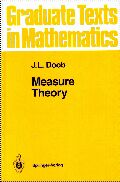
Sara Venkatraman
Email: venkatraman.sara [at] gmail.com
Google Scholar •
GitHub •
LinkedIn
Welcome! I am a Senior Research Associate in Statistics at Weill Cornell Medical College in New York City. I completed my PhD in Statistics in 2024 at Cornell University, where I was advised by Professors Martin Wells and Sumanta Basu. My research centers on statistical analysis of temporal and spatial processes, with a particular focus on nonlinear dynamics and estimating systems of differential equations from time series and spatiotemporal data. I am also interested in network science and numerical analysis, and broadly enjoy using statistics to understand complex social, demographic, and health-related phenomena.
Previously, I studied statistics at Yale University as a master’s student and at Cornell as an undergraduate.
Selected papers
Co-first authorship denoted by *.
-
Sparse reconstruction of ordinary differential equations with inference.
Sara Venkatraman, Sumanta Basu, Martin T. Wells.
Preprint, 2023.
2nd place, Upstate NY Statistics Conference student paper competition.
Paper • Slides -
An empirical Bayes approach to estimating dynamic models of co-regulated gene expression.
Sara Venkatraman, Sumanta Basu, Andrew G. Clark, Sofie Delbare, Myung Hee Lee, Martin T. Wells.
Data Science in Science, 2023.
IISA student paper competition winner.
Paper • Code (R) • Code (Python) • Slides -
Risk prediction for atherosclerotic cardiovascular disease with and without race stratification.
Arnab K. Ghosh, Sara Venkatraman, Michael G. Nanna, Monika M. Safford, Lisandro D. Colantonio, Todd M. Brown, Laura C. Pinheiro, Eric D. Peterson, Ann Marie Navar, Madeline R. Sterling, Orysya Soroka, Musarrat Nahid, Samprit Banerjee, Parag Goyal.
JAMA Cardiology, 2023.
Paper -
Association between city-wide lockdown and COVID-19 hospitalization rates in multigenerational households in New York City.
Arnab K. Ghosh*, Sara Venkatraman*, Evgeniya Reshetnyak, Mangala Rajan, Anjile An, John K. Chae, Mark A. Unruh, David Abramson, Charles DiMaggio, Nathaniel Hupert.
PLOS ONE, 2022.
Paper • Slides
More about me
I am from Los Angeles, California and have also lived in France, where I attended middle and high school. Outside of statistics, I enjoy classical music and running. My favorite dataset is the New York Philharmonic Performance History Database.
As a PhD student, I co-organized the Cornell math/statistics Directed Reading Program, which pairs undergraduates with PhD students to work on semester-long reading projects on topics of mutual interest.
 | If I were a Springer-Verlag Graduate Text in Mathematics, I would be J.L. Doob's Measure Theory. I am different from other books on measure theory in that I accept probability theory as an essential part of measure theory. This means that many examples are taken from probability; that probabilistic concepts such as independence, Markov processes, and conditional expectations are integrated into me rather than being relegated to an appendix; that more attention is paid to the role of algebras than is customary; and that the metric defining the distance between sets as the measure of their symmetric difference is exploited more than is customary. Which Springer GTM would you be? The Springer GTM Test |
Last updated: August 2025.